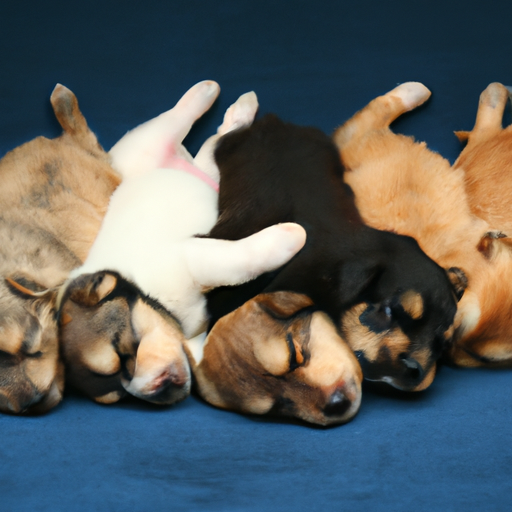Getting a new puppy can be an exciting time, but it’s also a time of great responsibility. One of the most important parts of puppy care is ensuring they get enough sleep. In this comprehensive guide, we will delve into the fascinating world of “Sleeping Puppies”.
Why Is Sleep Important for Puppies?
Sleep is a vital part of a puppy’s growth and development. Just like human babies, puppies spend a majority of their day sleeping. Here’s why:
- Growth: Puppies grow rapidly, and growth hormones are primarily released during sleep.
- Rest: Sleep provides the necessary rest that their small bodies need after a day full of learning and exploring.
- Memory Consolidation: Sleep helps in processing and remembering what they’ve learned.
How Much Sleep Do Puppies Need?
Puppies sleep a lot, often up to 20 hours a day. However, the amount of sleep required can vary based on:
- Age: Younger puppies generally sleep more than older ones.
- Size: Larger breeds often require more sleep.
- Activity Level: The more active a puppy is, the more sleep it will need.
| Age | Sleep Duration |
|---|---|
| 2 months | 18-20 hours |
| 3-6 months | 16-18 hours |
| 6-12 months | 14-16 hours |
How to Create a Sleep-friendly Environment for Puppies?
Creating an environment that encourages healthy sleep patterns is crucial. Here’s how you can do it:
- Bedding: Choose a comfortable bed that is suitable for your puppy’s size.
- Quietness: Keep the sleeping area quiet and free from disturbances.
- Darkness: Puppies sleep better in the dark, consider using a crate cover or room darkening shades.
Sleep Training for Puppies
Training your puppy to sleep through the night can be a daunting task. Here are some tips to make it easier:
- Establish a routine: Regular feeding, playtime and sleep schedules can help regulate your puppy’s internal clock.
- Limit late-night play: Avoid stimulating activities close to bedtime.
- Use the crate: Crate training can help create a safe, comfortable space for your puppy to sleep.
Common Sleep Problems in Puppies
Just like humans, puppies can also suffer from sleep problems. Here are some common issues:
- Insomnia: Stress, illness or a lack of exercise can cause insomnia.
- Excessive Sleep: Could be a sign of illness or depression.
- Restless Sleep: Could indicate discomfort or the need for a potty break.
If your puppy is having consistent sleep problems, it’s important to consult with a vet.
The Importance of Naps for Puppies
Naps are as important for puppies as nighttime sleep. They provide an opportunity for physical recovery and learning assimilation. Encourage regular naps throughout the day but be aware that too many long naps could interfere with nighttime sleep.
Understanding Your Puppy’s Sleep Patterns
Puppies’ sleep patterns can seem erratic, with bouts of activity followed by sudden nap times. However, understanding these patterns can help you better care for your pup. Keep a sleep diary to track when your puppy sleeps and for how long. This can help identify any potential issues and establish a routine.
Frequently Asked Questions
1. Why does my puppy sleep so much?
Puppies have a lot of growing and learning to do, which can be exhausting. Therefore, they need a lot of sleep to recharge. If your puppy’s sleep seems excessive or has changed suddenly, it is best to consult a vet.
2. Is it normal for my puppy to twitch in their sleep?
Yes, twitching can be a normal part of a puppy’s REM sleep. However, if the twitching is violent or accompanied by other concerning symptoms, it’s best to seek veterinary advice.
3. Can I wake my sleeping puppy?
It’s best to let sleeping puppies lie. However, if you need to wake them for a feeding or potty break, do so gently.
4. What if my puppy won’t sleep at night?
Try to establish a regular routine and create a calm sleep environment. If the problem persists, consult with a vet or a professional dog trainer.
Remember, your puppy’s sleep is vital for their health and wellbeing. By understanding their sleep needs, creating a sleep-friendly environment, and addressing any sleep problems, you can ensure your puppy grows into a healthy, happy dog.



